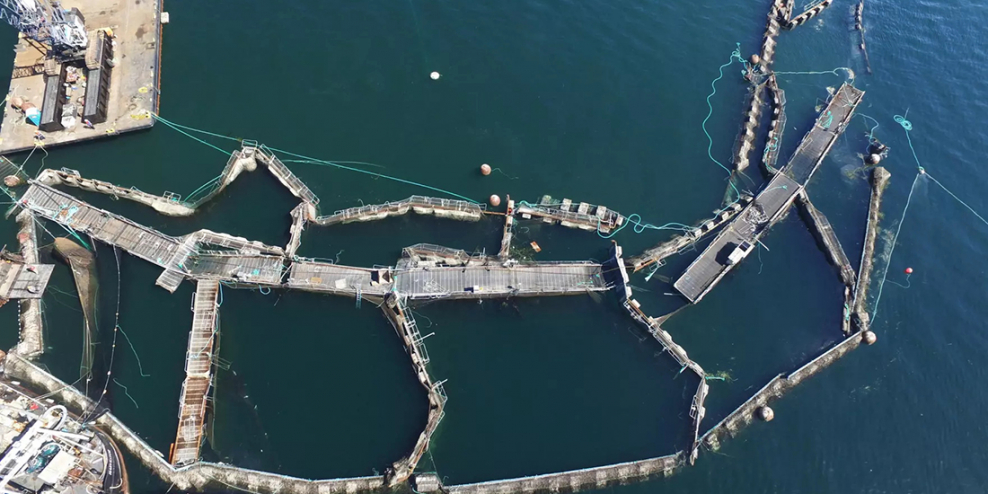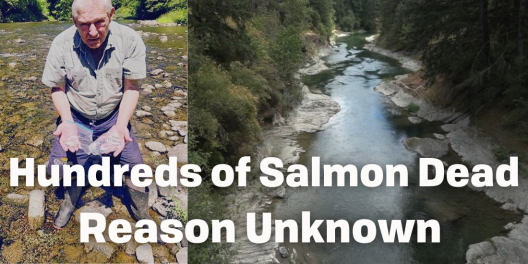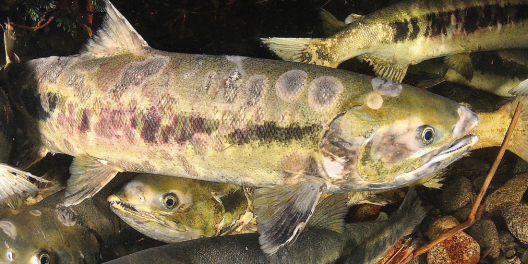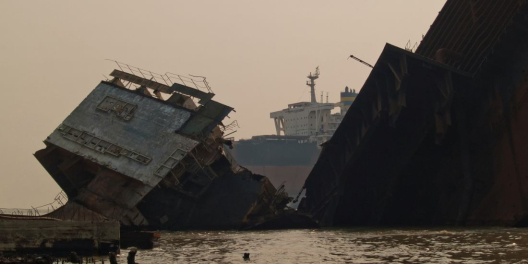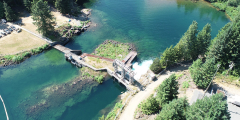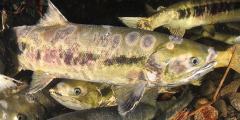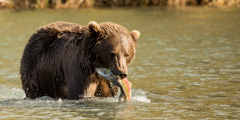Last month, Washington banned open net-pen fish farming. The move signals the end of a messy industry that’s been as controversial in their waters as it has been in ours.
“This is a critical step to support our waters, our fishermen and women, our tribes and the native salmon that we are so ferociously fighting to save and have so little time to do so,” Hilary Franz, state Commissioner of Public Lands, when she announced the decision in mid-November.
In 2017, a failure at one of Cooke Aquaculture’s fish farms dumped more than 250,000 Atlantic salmon into the waters around the San Juan Islands.
An investigation found the company purposely misled regulators and under-reported the scale of the release. Investigators also said that the incident was the result of negligence.
For example, as reported in the Seattle Times, internal communications showed that Cooke knew that fouling of nets caused a serious failure of the mooring system at the same farm earlier that summer.
Yet it told regulators two days after the incident that high tidal currents had caused “some movement” of the net pen, but that everything was back under control.
In other words, they lied.
In an interview at the time, commissioner Franz didn’t pull punches when she said that “Cooke’s disregard caused this disaster and recklessly put our state’s aquatic ecosystem at risk.”
After the Cooke Aquaculture disaster, Washington State’s Department of Natural Resources started terminating fish farms leases. The last four farms, located just south of Anacortes and next to the Swinomish Reservation, were removed on December 14th.
This looks and sounds a lot like good leadership, something that Fisheries and Oceans Canada (DFO) could learn from as it dithers and quietly back pedals on a commitment to remove all open net-pen fish farms from BC waters by 2025.
Washington’s announcement that it was ending open net-pen fish farming is being applauded by many. But it’s also being met with protest, mostly from people who work in or are connected to the salmon farming sector.
Make no mistake—these are not easy decisions to make for politicians. It takes backbone to stand up to an industry that pitches itself as a solution to food security and the saviour of rural economies, while minimizing and often hiding the environmental impacts of their operations.
Sadly in Canada, governments have a habit of kowtowing to corporate interests at the expense of public good. Take the long standing support of the asbestos mining industry in Quebec and the criminal masking of serious health impacts on miners and their families. Or, closer to home in BC, the gutting of the forest service and the increasing dependence on the logging industry to regulate itself and even have a hand in selecting key ministry appointees.
BC’s fish farming sector is no different. It will fight for its survival and peddle in misinformation to do so.
Now is the time for our political leaders and regulators to show some backbone. The template already exists.
Washington took decisive action to end this controversial industry, so what is DFO waiting for?

